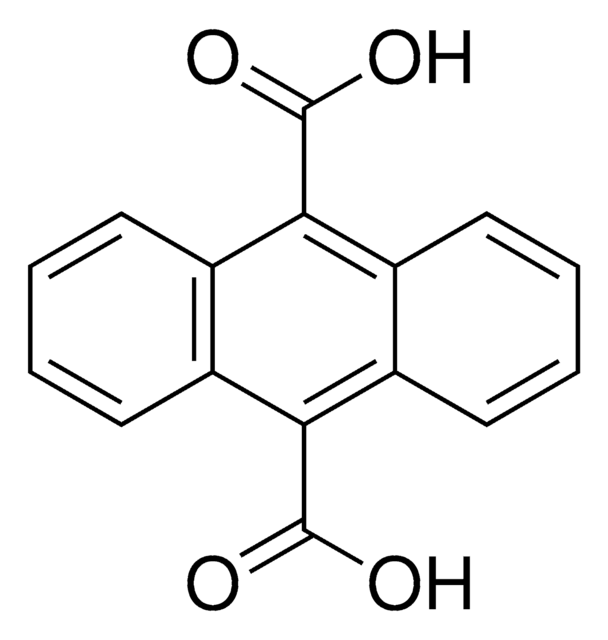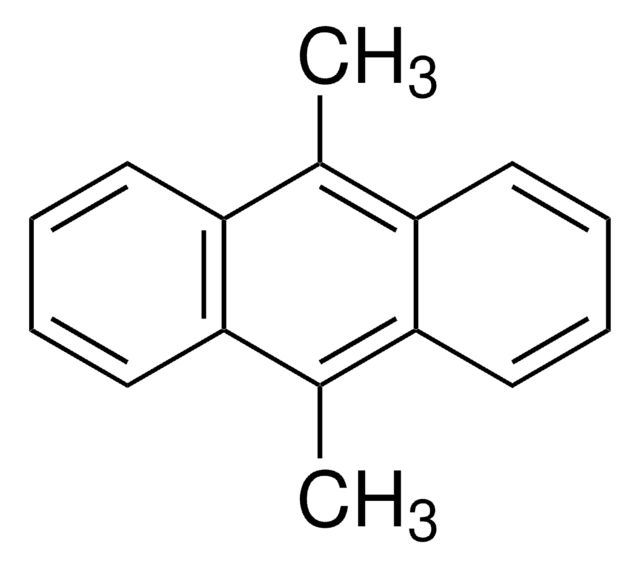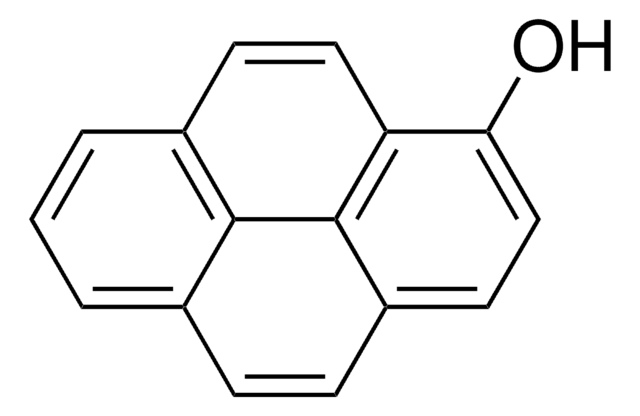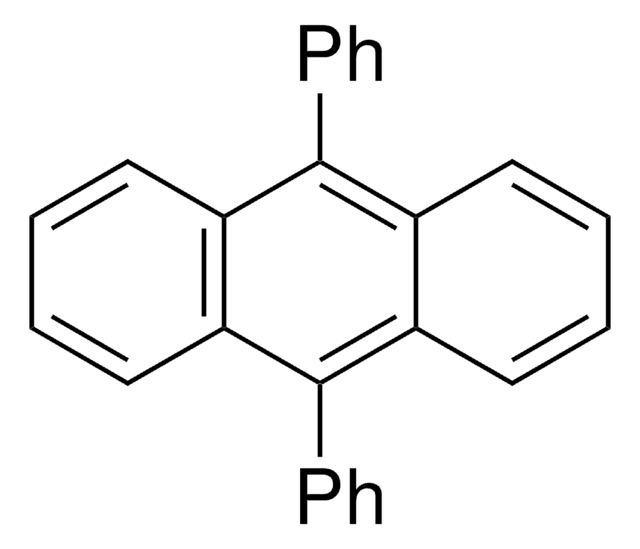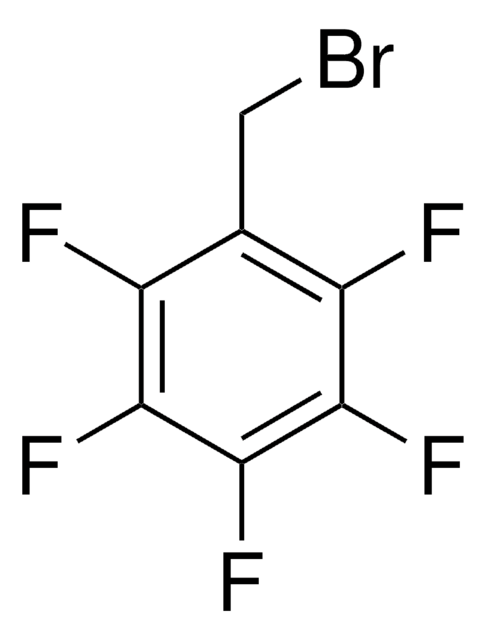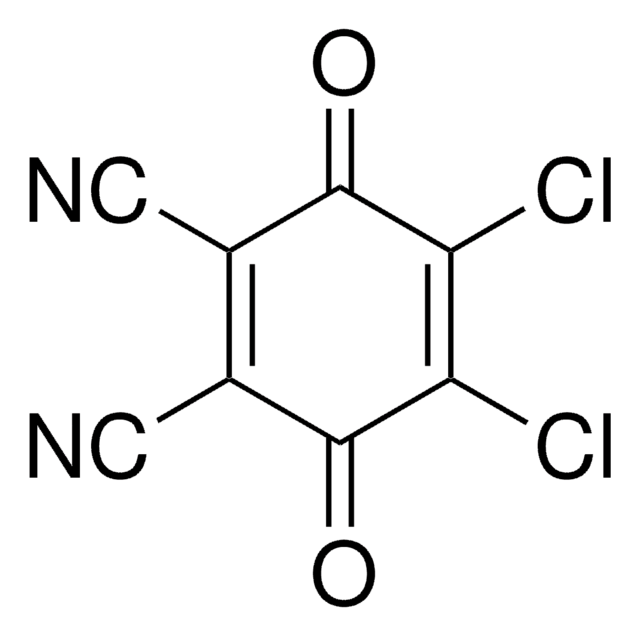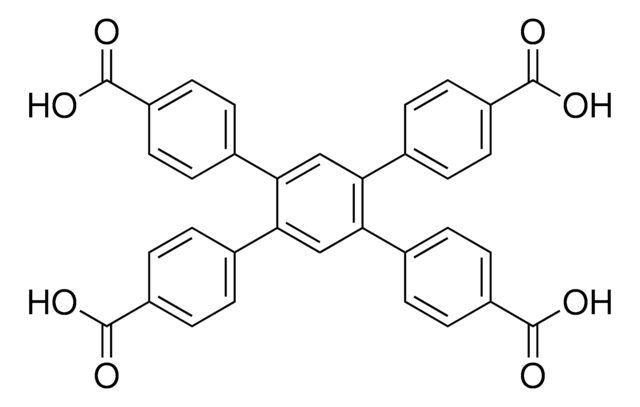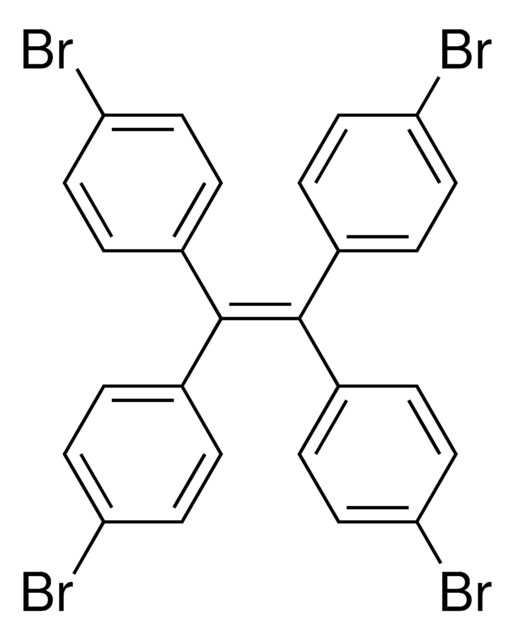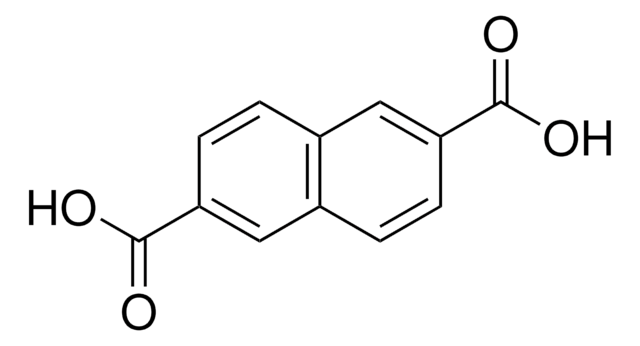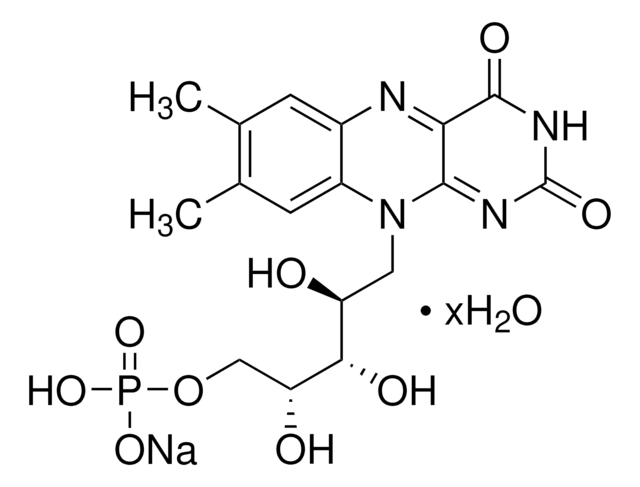75068
9,10-Anthracenediyl-bis(methylene)dimalonic acid
BioReagent, suitable for fluorescence, ≥90% (HPCE)
Synonym(s):
ABDA, Single Oxygen Probe
About This Item
Recommended Products
product line
BioReagent
Quality Level
Assay
≥90% (HPCE)
form
powder
solubility
DMSO: soluble
fluorescence
λex 380 nm; λem 407 nm in 0.1 M phosphate pH 7.0
suitability
suitable for fluorescence
SMILES string
OC(=O)C(Cc1c2ccccc2c(CC(C(O)=O)C(O)=O)c3ccccc13)C(O)=O
InChI
1S/C22H18O8/c23-19(24)17(20(25)26)9-15-11-5-1-2-6-12(11)16(10-18(21(27)28)22(29)30)14-8-4-3-7-13(14)15/h1-8,17-18H,9-10H2,(H,23,24)(H,25,26)(H,27,28)(H,29,30)
InChI key
DNUYOWCKBJFOGS-UHFFFAOYSA-N
General description
Application
Packaging
Analysis Note
Other Notes
Not finding the right product?
Try our Product Selector Tool.
Signal Word
Warning
Hazard Statements
Precautionary Statements
Hazard Classifications
Aquatic Acute 1 - Eye Irrit. 2 - Skin Irrit. 2 - STOT SE 3
Target Organs
Respiratory system
Storage Class Code
11 - Combustible Solids
WGK
WGK 3
Flash Point(F)
Not applicable
Flash Point(C)
Not applicable
Personal Protective Equipment
Choose from one of the most recent versions:
Already Own This Product?
Find documentation for the products that you have recently purchased in the Document Library.
Customers Also Viewed
Our team of scientists has experience in all areas of research including Life Science, Material Science, Chemical Synthesis, Chromatography, Analytical and many others.
Contact Technical Service
